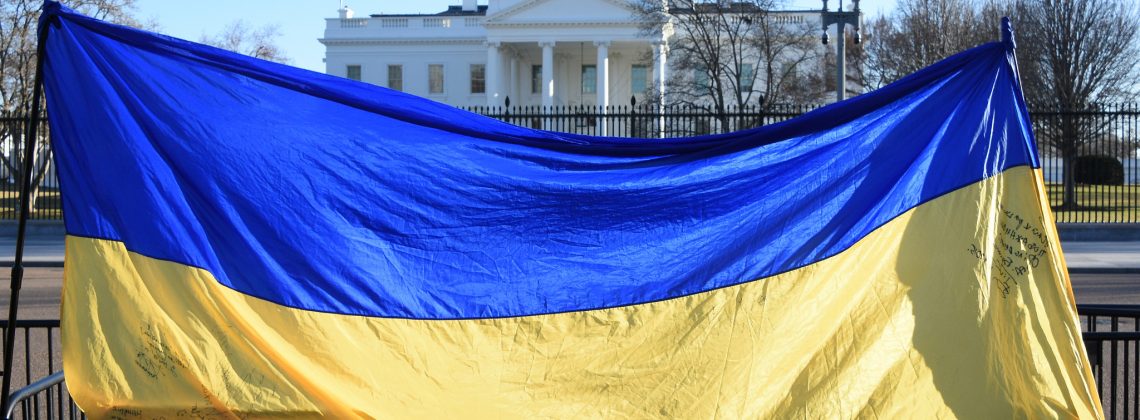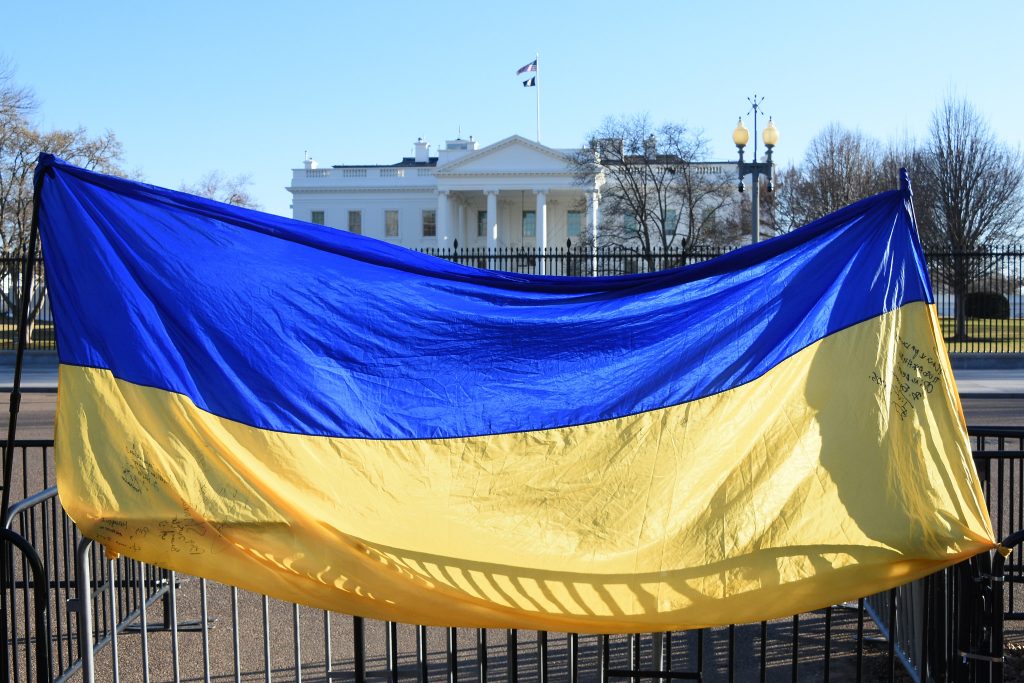

In the midst of autocratic threat, vision sharpens
Here at the end of the end of history, with Russian missiles pounding out time, my mind veers back to the last years of Brazil’s dictatorship, in the early 1980s, when democracy’s return was imminent and authoritarian rule immanent—everywhere at once; gauzy and soft: one more notorious case of the velvet glove cloaking an iron fist.
I was a kid, so what did I know? I knew what kids know. That was Presidente João Figueiredo on the wall of the classroom, the last of the string of generals who ruled the country from 1964 to 1985. His portrait radiated warmth; he looked nothing like the Russian strong men I feared. So why was it so creepy to see those eyes smiling out at us day after day?
It’s pretty simple: I sensed—as children do—where the power lay. I listened while my dad and other expats talked. Figueiredo’s picture was an icon beaming a strength and presence that were not pretend. He and his regime controlled our visas. Their soldiers manned the checkpoints that could manhandle us. Their functionaries could pilfer our funds whenever they required the next fee. We were theirs for the taking, an obscenity for which self-authorizing power had cleared the way.
Brasília, the nation’s capital, was a hot and long eighteen-hour drive to our east. But nothing made me feel more secure than knowing the U.S. embassy was, even so, somehow near. We were Americans, after all. Help could be on the way, if it came to that.
It never did. It wasn’t that we felt the daily threat of arbitrary power, exactly; no one we knew had suffered in severe ways. It was more the knowledge that, given the nation’s politics, this power could be a threat, one to which we would not prove equal.
Our Brazilian friends and neighbors embraced us entirely—the precise opposite of threat. But the gulf between them and the government—a government that didn’t somehow seem theirs—was hard to grasp. It felt wrong. Or at least off.
At what we did not yet know was the end of the Cold War, plenty of Cold War feeling charged the air. I listened not only to expats but also to a neighborhood friend named Celso, fifteen years my senior, who was attending night school to become a lawyer. He liked to talk politics and I, a high schooler, did too. He schooled me in something about which I knew little: the dangers, delusions, and deceptions of the guy I thought was kindly and kind of cool: Uncle Sam (not to mention his smiling nephew Ron, the current occupant of the White House). The story Celso told about our world was thicker and deeper and more disturbing than I could grasp. Or was willing to grasp.
Years later another friend, the Brazilian historian Henrique Alonso de A. R. Pereira, summed up the story with scholarly precision in the last two sentences of his 2015 book Os Estados Unidos a a Aliança para o Progresso (The United States and the Alliance for Progress): “During the 1960s and early 1970s the Latin American continent was swept by a series of coups d’état that implanted fierce military dictatorships. Many of these coups had considerable and significant help from the American government.” The understated irony of that final statement is intended to jar.
And it does. The democratically elected leaders of my country had helped empower a menace to its own vaunted ideals—and, more immediately, to those willing to fight for them. I did not know then that under Brazil’s dictatorship hundreds of citizens had been “disappeared” and many thousands more tortured, imprisoned, and repressed. In the early seventies, the dictatorship’s darkest stage, one future Brazilian president, Dilma Rousseff, was captured and tortured for her part in a revolt against it. Another future president, Luiz Ignácio Lula da Silva, was imprisoned a few years later for daring to lead a strike.
Sweeping censorship shut down speech, shut down song. The future Minister of Culture, the singer/songwriter Gilberto Gil, was imprisoned for several months without ever being charged, and was then forced into exile. He had been among those who dared not only to voice criticism of the regime but to express their protest artistically. It was too much, apparently—too much for a sclerotic autocracy captivated by delusions of its own salvific law-and-order goodness.
But despite its best intentions to eliminate such expression, the dictatorship, in explosive tension with the broader revolutionary vortex of the age, helped create the conditions that gave shape to one of the most enduring achievements in the history of Brazilian music—and, for that matter, the world’s music: the storied album Clube da Esquina (“The Corner Club”), this year marking its fiftieth anniversary. It is a triumph of popular art and democratic hope. Milton Nascimento, thirty years old and on his way to international fame, assembled and guided what was later described as an artistic collective, bringing together singers, composers, musicians, and poets for one of the most innovative and representative expressions of an era whose meaning defies understanding apart from song. In the words of the anthropologist Paulo Thiago de Mello, Clube da Esquina was “an adventure in love founded on friendship.” Amidst a very present darkness, the music was lit by hope.
It’s hardly surprising that, as de Mello says, “anguish”—angústia—was at the core of the album: “It is not a sad album, not melancholic. But it has an anguish, that moment’s sense of asphyxiation in the absence of liberty.” The opening song (a cover of which furnishes the soundtrack of a recent Kanye tweet) describes a young man aspiring to wear “the ring of Zapata” (Emiliano Zapata, hero of the Mexican Revolution, a half-century before), but also battling fear, the desire to give up and run away. Indeed, as the songs stream by, images of escape and exit multiply: passageways waiting to be taken from the misery that had swallowed the nation, a nation where, as one song has it, “the rats are loose in your house”—veiled images of the sort the censoring overlords had forced upon writers.
But the constrictions also spawned sharpened visions of freedom, the hope the clube itself prefigured: the solidarity of friendship, of amizade, that has over these three centuries defined and centered democratic aspiration at its richest, fostering bonds from sea to sea, and across the seas—from Thomas Paine’s “asylum for mankind” to Martin Luther King’s “beloved community.” “Man is stronger than the tide,” affirms Milton in one song. And the album’s very last line, at the close of its twenty-first track, delivers its culminating and defining image: “I run to meet you.” This is not retreat into isolation. It is advance into communion.
And it is advance not out of history but deeper into it. The end of history is not at hand. What is at hand is the ongoing battle for the dignity of life together in mutual honor, in the honesty of disagreement but the hope of peace. The Ukrainians have, with no time at all on the clock, offered us the miracle of democratic awakening. If we can stir ourselves to accept it, we might join the clube in professing that “every day, every day of warmth / is always one more day to remember / the mountain range of dreams the nighttime erased.”
Eric Miller is Professor of History and the Humanities at Geneva College, where he directs the honors program. His books include Hope in a Scattering Time: A Life of Christopher Lasch, and Brazilian Evangelicalism in the Twenty-First Century: An Inside and Outside Look(co-edited with Ronald J. Morgan). He is the Editor of Current.
This is not exactly on topic, but I liked your opening, “I was a kid, so what did I know? I knew what kids know. ” In the next paragraph you wrote, ” It’s pretty simple: I sensed—as children do—where the power lay. I listened while my dad and other expats talked.” Being a former kid myself, a very long time ago, when people were afraid that communism were infiltrating our county; the Iron Curtain that separated USSR from other countries; the fear of a nuclear threat.
I did appreciate the essay, but reading words about how children get to know the about the world was like receiving an affirmation of my childhood.
Thank you
Many thanks, Susan! I myself was surprised by this insight, which just sort of popped out onto the screen as I was writing. I realized that the supposed “innocence of childhood” certainly doesn’t diminish the acute sensitivity to threat that we know as children, when we are so aware of our smallness, our vulnerability, especially in a raw physical sense. Innocence implies a kind of knowing, even a higher form of knowing, in some ways at least. So maybe this is one way that “being like a child” really is a virtue: to be sensitive to the reality of power and threat.
I’ve also been struck since the invasion of Ukraine by the return of a raft of vivid Cold War memories. The distance between now and then is suddenly much shorter that it seemed to be just a month ago.
I had a similar awakening as a young adult in Ukraine. That same kind of, “but wait, do you know what your country did here, and here, and here?” from Europeans…
Thank you for this personal and perceptive piece.
I hit “post” a bit prematurely there.
I think you’ve captured something richer about what we see in Ukraine — in this midst of this horror — that stirs a deep longing in nations that profess democracy but are not battling for it.
“ What is at hand is the ongoing battle for the dignity of life together in mutual honor, in the honesty of disagreement but the hope of peace. The Ukrainians have, with no time at all on the clock, offered us the miracle of democratic awakening. ”
That’s a nice way to put it, Julie–professing but not battling. Thanks for that. We’re not used to seeing democracy as something to battle for, or really even something that requires a particular way of life (except for whatever life “democracy” gives me the freedom to choose). But if democracy is a way of life that we together must pursue, it follows that we will need to battle for it. And I think this is the gift the Ukrainians are giving to us: the ability to see both what we have and what we might yet have.
While preparing for class tomorrow, and as if in response to the above exchange with Julie, I find this illuminating and uncannily timely passage in Ellul’s *Presence in the Modern World*: “For as long as society has existed, the revolutionary spirit has been a necessary part of social life. It has always meant the affirmation of a truth of a spiritual order over against the error of the moment. Such truth must become incarnate in society, not by an automatic mechanism [i.e., mere procedural democracy], but by the desperate effort of human beings, by their sacrifice. They do this because of a hope that is greater than they and by the power of their freedom to resist all necessities and conformisms. This is the permanent essence of revolutions” (24–Cascade edition. See https://wipfandstock.com/9781498291347/presence-in-the-modern-world/).
We must see democracy in this way: as reflecting “a truth of a spiritual order,” even if it can only very partially reflect that order. What are the dimensions of that order that democracy–even in our late state of unwieldy pluralities–can yet reflect?